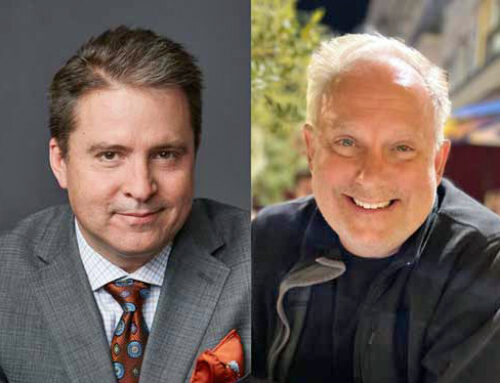Diane Birdwell stood on the Berlin Wall after its fall and witnessed the beginnings of Germany’s historic reunification. As a lieutenant with the U.S. Army, she lived in the country for a year, serving as a security officer guarding nuclear missiles.
Then she left the military, and got another really tough assignment: high school teacher.
Four years ago, with just one year of teaching experience behind her, Birdwell came to Bryan Adams High School as its newest history teacher. She’d experienced history first hand, so she knew it could be exciting. But she also knew her students probably wouldn’t realize that by reading a textbook.
So she came up with her own way of making history come alive: She asked fellow veterans to tell her students what they’d seen and done.
“The best way to teach history is through first-person accounts,” Birdwell says. “So instead of me talking about World War II, they got to meet World War II veterans.”
She named the project Operation Meet a Hero, inviting any and all veterans.
“I wanted to get all races and backgrounds, because I wanted the kids to see people who looked like them,” she says. “We invite any veteran, any branch of service, at any time. One year, we had a man who was on the Arizona when it was attacked in Pearl Harbor. We have Vietnam POWs, women who were truck drivers in the Philippines during the ’50s. They don’t have to have been in combat.”
When the students and vets found their seats among the cafeteria tables that first year, none of them was sure what to expect.
“Many of the vets grew up in segregated high schools, and haven’t even been in a high school for years. And like a lot of people, some had negative impressions of DISD, because they hear all the negative things in the news.”
The students also had their misgivings.
“The kids thought it was going to be boring. They imagined sitting around with a bunch of old men,” she says. “But when it was over, they weren’t ready to leave. And they come back saying ‘Hey, they’re cool, they were really interesting.’”
The event was such a success, it has been held at the school every year since, with the number of veterans increasing each time. Teacher Hillary Keys became involved with the program two years ago, having her broadcast journalism students tape interviews of the veterans.
“The goal is to create an oral history. I’d like to get it compiled at some point and distribute it to history teachers when we have enough material,” she says.
The students receive interviewing practice, Keys says, as well as other valuable lessons.
“It’s important for students to understand why they have the freedoms they do. They see these vets come in, especially some of the disabled vets, and they realize it’s not a game. They realize these are real people who have given up a lot for our freedom and who have a lot to share,” she says.
And for a little more than an hour each year, two groups that normally would rarely cross paths, much less communicate well, find a new understanding.
“It turns the kids’ ideas around about older people and what they have to offer, and gives them a new respect and appreciation for them,” Birdwell says. “And the vets are absolutely impressed with our kids, at how well behaved and interested they are.
“It’s an amazing thing to see them come together.”





